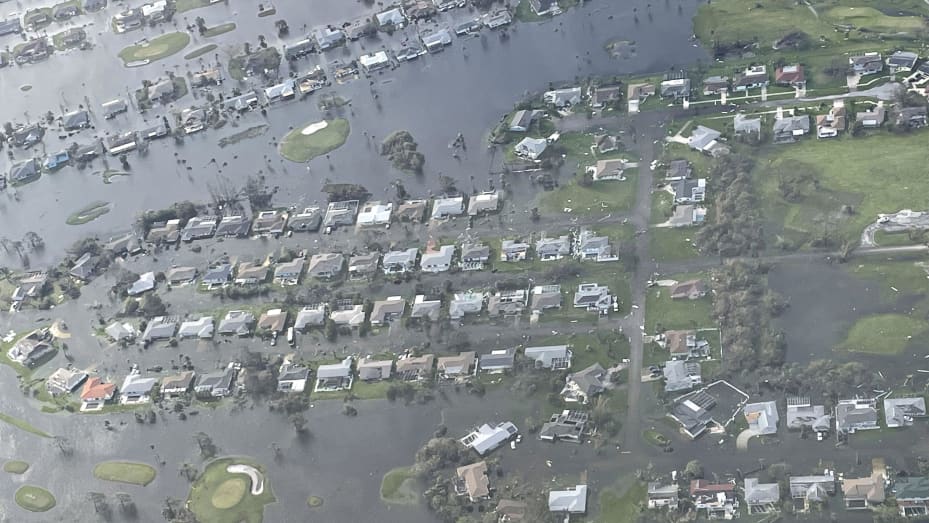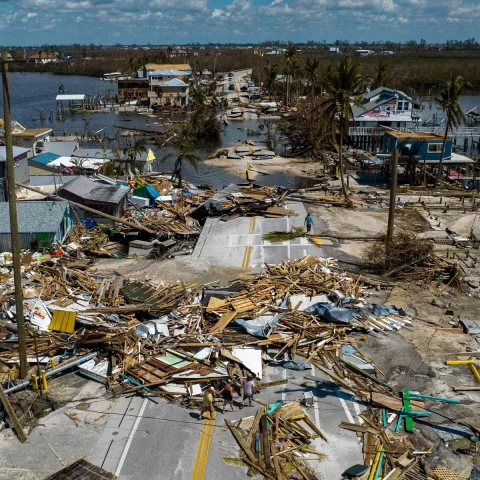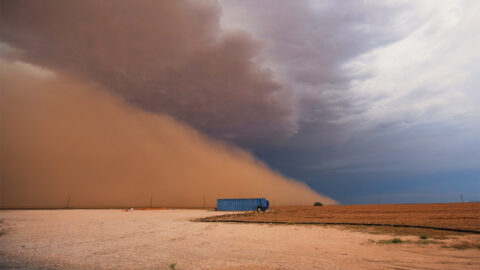Podcast: Play in new window | Download
Subscribe:

he aftermath of Hurricane Ian in Fort Myers, Florida.
Florida and Hurricane Ian offer yet another example of the truism that profound misunderstanding of how things work, a.k.a. ignorance, can be deadly. The same people who often complain after a hurricane that the forecasters hyped the danger while nothing much bad happened are now caterwauling that the forecasters and the media and the government did not warn them soon enough or strongly enough about Ian.
Horsefeathers. The National Weather Service issued warnings five days before the storm hit that it posed severe danger to all of southern and central Florida.
Now here’s the first thing one must understand if one is subject to weather: it is not possible to predict exactly where and when it will rain, or the wind will blow, or the tornado will spin up. When you are trying to predict what will happen in a global cauldron of hot and cold air, constantly rising and sinking, forming huge lateral currents, migrating poleward then toward the equator, absorbing and then shedding moisture, all on a spinning earth, what you get is not an accurate forecast of what is going to happen in any specific place, but an estimate. That is the best you are ever going to get, ever, no matter what new technology appears. Continue reading →
 Every year, environmental czars and ministers and activists, together with a gaggle of lobbyists and politicians from around the world, mount their private jets and (leaving a haze of contrails behind them) converge on a posh Middle Eastern spa to sip champagne, nibble on caviar and talk about what a good job they are doing saving the environment. The latest United-Nations-sponsored conference called COP28 — because it is the 28th consecutive successful year of the War on Climate Change — convened in Dubai in November. Continue reading
Every year, environmental czars and ministers and activists, together with a gaggle of lobbyists and politicians from around the world, mount their private jets and (leaving a haze of contrails behind them) converge on a posh Middle Eastern spa to sip champagne, nibble on caviar and talk about what a good job they are doing saving the environment. The latest United-Nations-sponsored conference called COP28 — because it is the 28th consecutive successful year of the War on Climate Change — convened in Dubai in November. Continue reading 

 It is nothing less than surreal for those of us who expect an imminent collapse of industrial civilization to see the American public and its political leaders either studiously ignore the rapidly mounting evidence of multiple existential threats, or to react in increasingly lunatic ways. A few examples:
It is nothing less than surreal for those of us who expect an imminent collapse of industrial civilization to see the American public and its political leaders either studiously ignore the rapidly mounting evidence of multiple existential threats, or to react in increasingly lunatic ways. A few examples:

 She wailed the question to a passing TV helicopter as she struggled down a street in New Orleans, chest-deep in the filthy floodwaters of Hurricane Katrina. The memory has stuck to my conscience like a burr to a saddle blanket for all these seventeen years, not only because of the depth of human misery and desperation the question expressed, but because of the assumption behind it: that someone, somewhere, knows what we are supposed to do, and if we could only find out what it is, and do it, or have done it, everything would be all right again.
She wailed the question to a passing TV helicopter as she struggled down a street in New Orleans, chest-deep in the filthy floodwaters of Hurricane Katrina. The memory has stuck to my conscience like a burr to a saddle blanket for all these seventeen years, not only because of the depth of human misery and desperation the question expressed, but because of the assumption behind it: that someone, somewhere, knows what we are supposed to do, and if we could only find out what it is, and do it, or have done it, everything would be all right again. 
